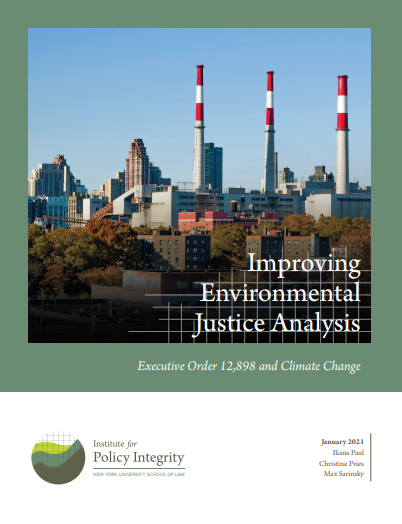Distributional and equity concerns have typically received short shrift in federal administrative decisionmaking, particularly with regard to actions with climate-change impacts. Regulations and project determinations that cause greenhouse gas emissions and so contribute to global climate change lead to a number of harms that disproportionately affect low-income and minority communities.
This report aims to aid advocates and policymakers in meaningfully addressing the disparate climate-change impacts of federal actions. It provides background on Executive Order 12,898 and explains how renewed national attention to environmental justice presents an opportunity to improve agency compliance with the Order. It then explores the legal justification for considering climate effects in environmental justice analyses, followed by numerous examples of how climate change will affect already vulnerable communities. The report concludes by offering some steps agencies can take to incorporate climate impacts into their analysis under Executive Order 12,898, including illustrative examples of how agencies have done so in the past.

